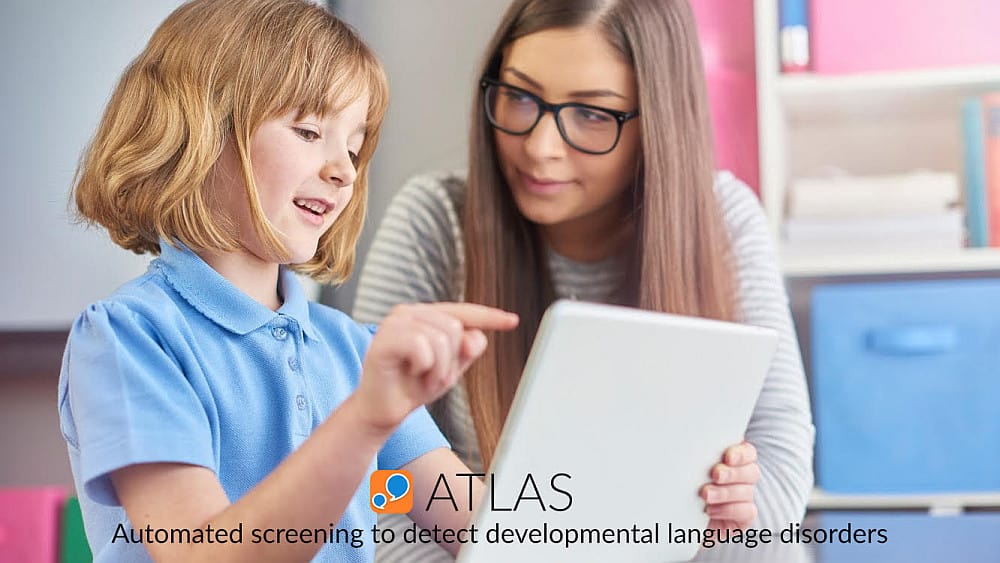£150,000 funding for speech disorder screening app
A first-of-its-kind app to help detect developmental language disorders in children quickly and cost effectively has received £150,000 in funding from the National Institute for Health Research (NIHR), the research arm of the NHS, to help bring it to market. ATLAS is being developed by Therapy Box, an innovative creator of apps across healthcare and education, and will help solve the problem of lack of resource to identify children who need speech and language therapy – estimated at around 90,000 children per year in the UK alone, in the six to ten age bracket.
Therapy Box was founded in 2010 by Rebecca Bright MBE and Swapnil Gadgil, who combined their speech and language therapy experience with technology expertise to meet the needs of those who have communication difficulties.
NHS therapists, and their colleagues overseas, currently spend 30 minutes screening each child followed by 90 minutes of manual transcription of the assessment and analysis. Lack of resource means children are either not assessed fully or not every child is assessed, which can deprive them of the right type and intensity of speech therapy. ATLAS uses acoustic and linguistic analysis with machine learning to screen for developmental language disorders.
Rebecca Bright, speech and language therapist and founder of Therapy Box, explained: “Nationally, an estimated 85,000 – 90,000 (14.6 per cent of births) children per year are assessed as having a speech and language disability after being referred. In some areas, particularly areas of social disadvantage, this group may be upwards of 50 per cent of children at school entry age. We also know that 50 per cent of offenders in custody have a communication problem.
“The benefit of providing enhanced speech and language therapy for all children aged 6 to 10 who currently have a developmental language disorder exceeds the cost of therapy by £741.8million. Continued implementation of speech and language therapy for those children would generate a net benefit of £148.4million per year in subsequent years. This is why it is fantastic we have been awarded funding to continue developing ATLAS to screen children quicker with less resource, enable them to be seen and get the help they need to then have a better outcome with education, subsequent employment and quality of life,” she added.
Screening for developmental language disorder is best done early and often, and ATLAS is an easy-to-administer app-based tool for use on iPads by NHS speech and language therapists (SLTs) or parents to assess children’s language skills. It will use a recording of a child talking, which reflects the child’s everyday language skills, and provide automated best practice analysis and robust data for therapy planning and outcome measurement, leading to greater efficiencies and better informed practice.
Rebecca concluded: “By using advances in machine learning and a unique dataset we will produce a technology that can directly interpret speech input for children with developmental language disorders. The fact that child speech input will be directly recognised, transcribed and analysed significantly differentiates the product from other tools used in healthcare today.”
The website is HERE


